The content of the article
The body of a pregnant woman works for two. A new life that is only developing and preparing for an independent existence requires a special reverent attitude. Nature took care of this, protecting the life growing in the womb in every way: directing the work of mother’s immunity to protect it, supplying it with all the necessary nutrients from the general circulatory system of mother and baby.
And what does the woman herself do? Eat right and take care of your health! But this is ideal! And if the expectant mother does not want to give up her habits that she had before pregnancy and change her usual lifestyle? This is not about sports and work, but about drinking alcohol.
Alcohol is the enemy of new life
It is believed that alcohol in small doses is completely unable to harm. A small dose of red dry wine for a pregnant woman is supposedly useful: it increases hemoglobin and appetite. Can a child have a drink? The process of drinking alcohol by a pregnant woman can be compared with her joint meal with her child: she shares this dose for two.
Ethanol and its decay products are strong toxic substances that act at the cellular level. These substances act absolutely on all shells, tissues and internal organs of the embryo. There are disturbances in the hormonal background and metabolism.
At that moment, when alcohol enters the woman’s blood, the child also receives a dose. But if a woman receives a small dose relative to her body weight, an embryo weighing less than three kilograms will receive a giant portion of booze.
If the mother becomes intoxicated for a short time and after some time forgets about this condition, the embryo will receive severe poisoning, as a result of which serious changes can occur in its forming organs, which in some cases even lead to its death.
Irreparable consequences
Even small doses of a low-alcohol drink can lead to the development of intrauterine alcoholism syndrome, which will affect the emerging embryo as follows:
- Occurrence of maxillofacial defects: cheekbones hypoplasia; sloping chin; narrowing of the palpebral fissures; strabismus; paralysis of the muscles of the upper eyelid; short upper lip; "Cleft lip"; abnormal sky structure.
- The formation of a beveled neck and a small head;
- The birth of a child with a low weight;
- Violation of physical development: disproportionate physique, low or excessively high growth, inappropriate for body weight;
- Deformation of the chest, joints (hands do not bend at the elbows), underdevelopment of the hip joints; lack of fingers on hands and feet or their incorrect formation;
- Pathological changes in the nervous system: microcephaly of the brain (underdevelopment); incomplete fusion of the spinal canal;
- Abnormal formation of internal organs, most often to heart disease, genital disorders.
These are not all the pathologies that can develop in a fetus with a diagnosis of alcohol syndrome. The most unpleasant thing is that this happens quite often. The misconception of many pregnant women that low-dose alcohol does not harm the fetus led to such terrible figures: in women who drank alcohol during pregnancy, childbirth in 20% of cases ends in the death of the newborn, since congenital pathologies in the baby are not compatible with life. While among pregnant women who do not drink alcohol, this figure is ten times less.
A drinking woman experiences disturbances in the functioning of certain organs: the liver, heart of the pancreas, nervous system. All these pathologies also affect the health of the child.
If alcohol enters the circulatory system of the mother and fetus, then oxygen and nutrients are delivered more slowly, and metabolic processes are hindered.
Talking about the permissible dose of alcohol during pregnancy is completely meaningless. The fact is that such doses do not exist. A woman who wants to give birth to a healthy baby should completely exclude alcohol at the planning stage of the baby.
In anticipation of the birth of a new life
When planning a pregnancy, alcohol should be excluded for both future parents: otherwise, conception may simply not happen, and if it does happen, then in rare cases the development of pathologies in the fetus can be avoided. The fact is that:
- In the male body, sperm composition is updated once every 2-3 months. Sperm cells mature, live and contain those substances that have entered the blood of a man during this entire period.
- The eggs mature in the ovaries for a month, they are stored in substances that enter the female body throughout this period.
Drawing a conclusion from these facts, it is worth noting: the sooner alcohol toxins are removed from the body before conceiving a child, the less health problems the future offspring will have. It is advisable to stop drinking alcohol at least six months before conception.
However, a planned pregnancy is a very rare phenomenon and in most cases, conception occurs after a romantic evening with a glass or other wine. If intoxication has not occurred in the body of the future mother, then problems with the pathology of the fetus can be avoided. During the conception period and before the introduction of the fertilized egg into the uterine wall, the fetus is protected by special natural mechanisms. But this does not mean that it is guaranteed to avoid the development of diseases in the baby.
Conception under intoxication
Unfortunately, in those conceived in a state of intoxication, babies have pathologies of the nervous system, mental disorders occur ten times more often. The debate of scientists from different countries about the effect of alcohol on male sperm has been going on for a long time. Many argue that the pathology of the fetus is not related to the future father who was taken before conception. After all, the process of sperm maturation takes about three months.
Recent scientific studies have confirmed the fact that alcohol begins to act on sperm immediately after it enters the bloodstream. In the sperm of a healthy, non-alcohol-taking man, up to 25% of pathological spermatozoa are present, they do not take part in conception and die.
After taking any alcoholic beverage, the number of such sperm cells increases, which leads to the fact that the egg is fertilized by a pathological sperm. As a result of this, various genetic disorders occur in the fetus: the number of chromosomes changes. For this reason, a child may be born with diseases such as Down syndrome, Patau, oligophrenia.
The egg ripens for a month, alcohol can affect its quality. However, the wine drunk by a woman on the eve of conception will do much less harm than the alcohol accepted by a man.
As for the period from the moment of conception, then the responsibility for the health of the fetus lies entirely with the mother, as in the remaining months of pregnancy.
After the conception has occurred, nature begins to follow this principle: either a healthy embryo, or none. That is, in the period up to 3 months only a healthy embryo can survive. If pathological changes have occurred, the embryo dies and a miscarriage occurs.
What does alcohol lead to?
A woman taking alcohol during pregnancy has the following problems:
- Drunk a glass of alcohol, even in small quantities in the early stages, often leads to miscarriage.
- Excessive drinking causes malformations of the fetus.
- Chronic alcoholism leads to fetal alcohol syndrome.
- Even moderate intake of low-alcohol drinks leads to disorders in the brain of the fetus. The sad fact is that these changes cannot be detected during pregnancy. They appear much later after the birth of the baby.
- When alcohol enters the mother’s blood, the cells of the liver of the embryo, its vascular system, heart and brain are affected. As a result of this, a child will have brain disorders in the future.
- In addition to alcohol, the development of pathologies in a baby is affected by narcotic drugs, psychotropic, painkillers and anticonvulsants.
- A mother who is addicted to alcohol damages her eggs, causing genetic changes in the fetus that can lead to her death or the development of serious illnesses.
- A baby born in a family where alcohol is often consumed lags behind his peers in physical and mental development, his immunity is weakened, he is more often sick. And besides this, the baby has an inborn need for alcohol - dependence.
- A growing embryo can be harmed by many factors, the most harmful of which is alcohol.
- Do not forget about the alcohol content in some drugs. It is necessary to read the composition of the product on the label and to prevent the use of such products during pregnancy.
A pregnant woman should get used to the idea that she is responsible not only for her life, but also for life inside her. It depends on the parents what the future life of this little man will be: happy and healthy or filled with suffering and pain.
The main thing when planning a pregnancy you need to remember: no short-term pleasure is worth the life and health of an unborn baby.
Video: how alcohol affects fetal development in the womb


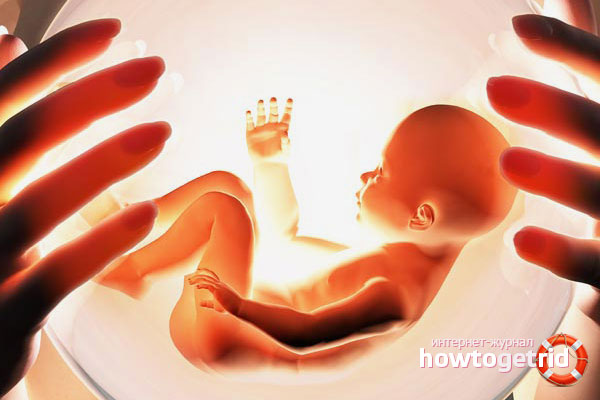

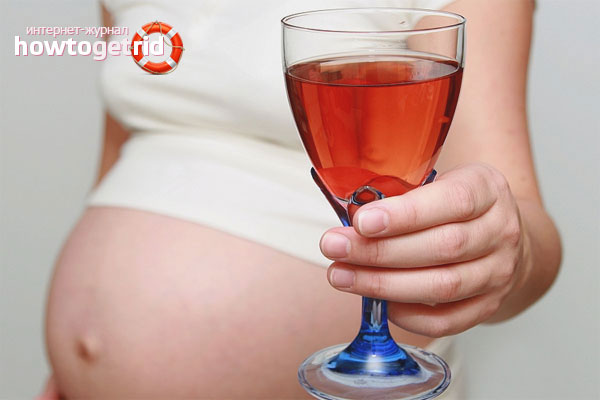


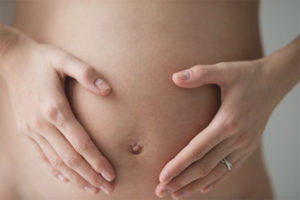

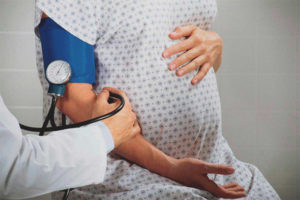
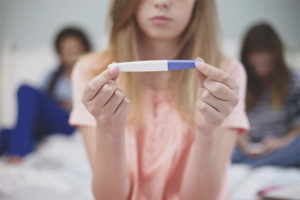
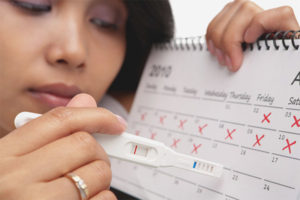

Submit